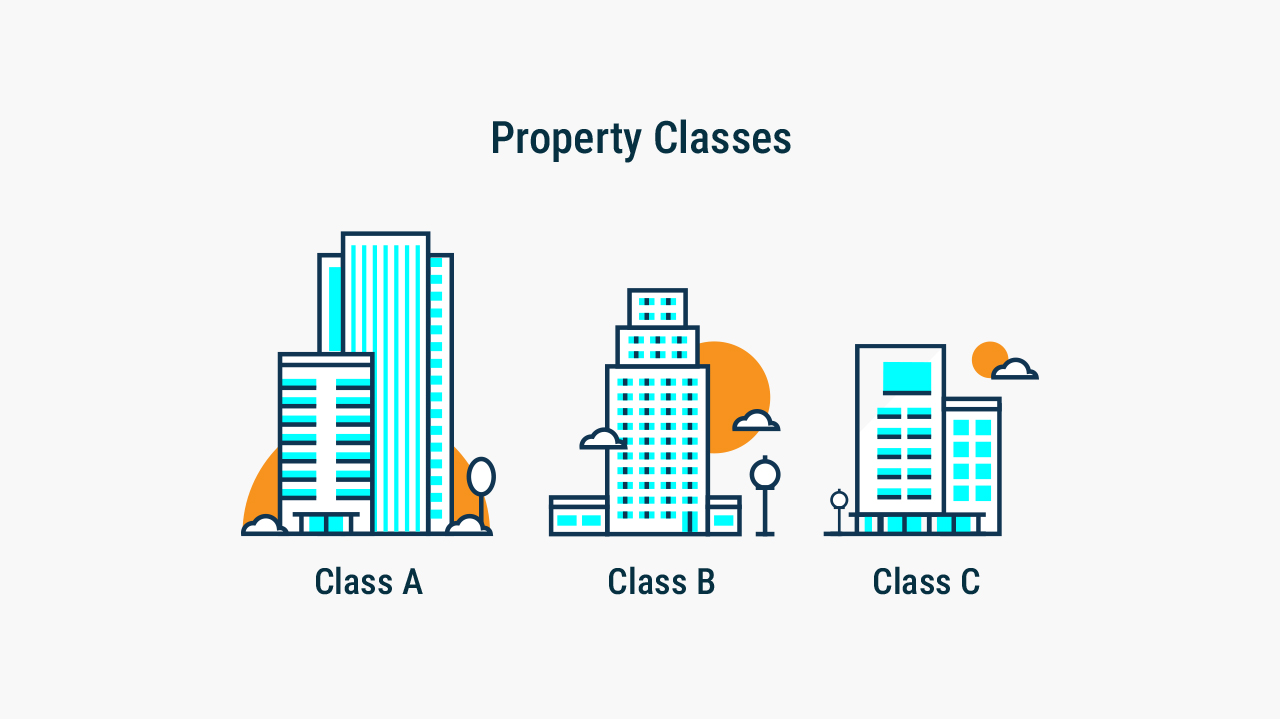 229 Views
229 Views
10 Reasons Why You Should Hire a Tenant Representation Broker

Introduction
A tenant rep broker is a commercial real estate broker who works for companies looking to lease space. The advantage to the tenant is that a single-minded and focused individual will serve their needs while eliminating potential conflicts of interest. For example, a tenant rep broker can assist with financial analysis by researching and analyzing the local real estate market to identify trends, opportunities, and potential risks.
This can include evaluating factors such as rental rates, occupancy data, and competition, as well as assessing the overall financial stability of the market. So, if you need property and are considering going through the leasing process alone, we have discussed ten reasons to consider hiring a tenant representation broker.
1. Local Knowledge & Early Access Data
A tenant representation broker has the expertise and experience in the local real estate market and can help tenants quickly find spaces that meet their specific needs and preferences. While it may seem that using online informational platforms such as LoopNet, property websites, and other commercial real estate marketplaces can give you instant access to the whole world of available spaces, it is essential to note that the best spaces are often taken before they are listed publicly. Tenant representation brokers have access to various tools and resources, and the best of them know the upcoming opportunities that may still need to be publicly listed. They help tenants take advantage of early opportunities, such as spaces becoming available shortly after the previous occupier leaves or motivating landlords who may still need to be ready to lease. They can assist you in taking advantage of these early opportunities before they are openly promoted.
2. Needs Analysis & Market Knowledge
A commercial tenant broker can help with needs analysis by working with tenants to identify their specific needs and preferences for a space. This can include evaluating location, size, layout, and cost and assessing the tenant’s long-term business goals and objectives. Finding spaces is only part of what goes into tenant representation. Knowing which spaces are suitable and which aren’t is also an essential part of the process. Tenant rep brokers are often industry-specific experts in the market, which means you can use them to identify what you can pay and what you should be paying for standard or specialized space. They also know which lease terms are standard in their area, so they can help you decide whether or not a proposed offer is reasonable.

They can help you evaluate the pros and cons of spaces from different landlords and guide you on which space and lease terms best fit your business. They can assist with the due diligence process and help you identify potential issues with the lease terms before you commit to a lease. This can help you avoid unpleasant surprises down the road. This can include evaluating the condition of the building and its systems, researching zoning and building code regulations, and assessing the overall financial stability of the landlord. Additionally, a tenant representation broker can review any lease and negotiate any necessary changes or amendments on behalf of the tenant. Once the tenant has chosen a space, the broker can help with the move-in process by coordinating with the landlord and other necessary parties.
3. Lease Auditing & Expertise in Complicated Lease Terms
Lease auditing is another area where tenant rep brokers can help by reviewing the lease agreement and identifying potential issues or areas of concern. This can include reviewing clauses, provisions, and lease terms that may hurt the tenant later and working on modifying them. Commercial lease reviews involve specific wording and terms difficult for the average tenant to interpret. It is a must to fully understand the lease if the tenant wants to avoid overpaying for their new commercial space. A broker has the knowledge and expertise in this sector, from explaining the lease terms to providing valuable information and insights on factors such as rental rates and concessions, which can help the tenant negotiate lease terms better with the landlord. That’s why a tenant representation broker can be a tremendous resource.
4. Proposal Process Assistance & Negotiation
Commercial real estate negotiations can be long and complicated. During the proposal preparation process, a tenant representation broker can help the tenant evaluate and compare different spaces and negotiate lease terms. This can include lease extension negotiation, rental rates, and other conditions and ensuring that the tenant’s needs and preferences are met.

The leases typically involve multiple business parties, terms, and legal points, and because of these terms that go into a lease, it can take time to track how a deal is progressing. Tenant rep brokers make a career out of these negotiations. They can negotiate better lease terms on the tenant’s behalf, such as getting a favorable rental rate, checking additional tenant improvement costs, or making lease terms flexible. They can also help tenants plan for the future by assessing their long-term space needs and identifying potential growth opportunities. They can manage the process, create leverage and act as a “buffer” between tenant and prospective landlord.
5. Creates a Competitive Environment
The tenant should begin to look for a new business location 9-10 months before the current lease expiration date. When negotiating a new office lease or renewing an expired one, a tenant should take advantage of the landlord’s deal if he intends to get the best financial terms. Commercial tenant representation services can assist the tenant in negotiating comprehensive lease terms and documents, such as rental rates and other conditions. They can help the tenant understand the lease agreement’s legal and financial implications. They can also help the tenant negotiate and review purchase agreements.

During the detailed request for proposal (RFP) process, a tenant representation broker can help the tenant prepare and submit RFPs to the landlords and property managers, outlining the tenant’s needs and preferences for a commercial space. Such a broker can advocate on the tenant’s behalf to find other suitable places as options and leverage the tenant’s strengths to create a competitive environment among the landlords.
6. Conflict-Free Service During Construction & Move-In Supervision
A tenant rep broker can assist with construction and move-in supervision by coordinating with the landlord and other necessary parties to ensure that the space is ready for occupancy on time and within budget. This can include overseeing the construction process, such as working with contractors, architects, and civil engineers and ensuring that the project is completed in compliance with all relevant regulations and building codes. Additionally, such a broker can help coordinate with the landlord to negotiate final lease terms and details. This can include final walkthroughs, a punch list (may consist of items such as painting, touch-up, cleaning, and minor repairs, as well as the inspection of the HVAC, electrical, plumbing, and other systems), and finalizing any necessary modifications to the space. They can also assist with obtaining any required permits and certifications for occupancy. They may also handle the coordination of utilities, IT, and other services to be set up in the space. While it might seem easier to work with the landlord’s representative, at the end of the day, it’s important to remember who he works for: the landlord. They are ethically and legally bound to care for the landlord’s interests at your expense. When you have a tenant representation broker working with you, they are ethically and legally bound to put you first. Your broker has one job: to get you the best possible space at the best price, ensuring no conflicts of interest.
7. Acquisition of Economic Incentives & Time-Saving
Economic incentive acquisition refers to obtaining financial assistance or other benefits from the government or other private entities to help offset the costs of developing a commercial real estate property. This can include tax breaks, grants, low-interest loans, or other forms of financial assistance. The broker’s goal is to search for options to make a real estate project more financially viable and attractive to tenants by reducing the costs associated with the leasing project. Precisely translating business needs into physical space requires an expert. The entire lease process is extensive and can take a significant amount of time if someone who is not an expert in this industry tries to do it on his own. Finding a proper space for a business is complex and time-consuming. Finding appropriate vacant spaces is often challenging if they are not advertised openly. Communicating with the leasing contacts, arranging tours and visiting those spaces, considering all the RFPs, carefully identifying the one that meets all the requirements, understanding the lease terms and negotiating the terms with the prospective landlord, finalizing the LOI (Letter of Intent), space planning, facilitating the due diligence process, and coordinating with different teams to make the space ready for tenant’s business can quickly go wrong if all of these done by someone who doesn’t have enough knowledge in the CRE sector. These procedures can be managed much more quickly and effectively with the expertise of a tenant representative.
8. Vast Network for Effective Coordination
A great tenant rep broker has a vast connection with professionals from different industries. The tenant’s company will require a team of experts from several industries who will be local to the property they’re relocating. Such a broker can coordinate a productive team of experts using his project management skills. His team may include the following:
Commercial real estate lawyers: It is crucial to have a real estate lawyer on your side since they are familiar with local rules and can defend your business legally while renting property for commercial purposes. A broker can assist you in connecting with the one who might provide you with conflict-free service.
Architects and Designers: A tenant representative can help get in touch with architects and designers who know what is necessary to develop a new structure or offer guidance so that a business can get the most out of its design.
Construction Engineering Team: If the place requires heavy renovation work and the tenant gets to choose the construction team, then the tenant rep broker can assist in finding the best construction team who can complete their construction needs on schedule.
9. Strategic Planning & Project Management
Commercial tenant brokers can help the tenant identify potential spaces that meet their specific preferences and evaluate each space based on location, size, layout, and cost. They can assist with arranging property tours, where the tenant can visit potential spaces and better understand their features and amenities. In terms of strategic planning, a tenant representation broker can help the tenant develop a plan for finding and leasing a space that aligns with their business goals and objectives. This can include identifying key focus areas, such as cost savings, finding a location, and developing a timeline for the search and leasing process. Such a broker can help oversee the construction and move-in process to ensure the space is ready for occupancy on time and within budget. This can include coordinating with fire safety contractors, architects, and engineers, overseeing inspections, and obtaining permits. They can also assist with coordinating the various aspects of the construction process, such as inspecting the work and ensuring that the project is completed in compliance with all relevant wiring and building codes.
10. Continuous Service & Already Paid For
It might appear that the work of a tenant representation broker has ended when the lease is finalized and the tenant moved to the new location. But remember that it is a continuous service. The broker will assist the renter if they require any advice. The tenant representative might be able to support the tenant or provide him with sound advice if he has any questions about his tenancy, requires assistance subleasing the space if it is too large for their business, or wants to negotiate an early termination for some legitimate reasons with the lessee. When the lease needs to be renewed, the tenant might find their representative helping them do everything again from beginning to end. Brokers who act as tenants’ representatives frequently maintain contact with the clients they serve. If all of these other benefits aren’t enough to convince you to hire a tenant rep, here is one more: it’s free. Landlords almost always pay commissions for both sides of the transaction. In addition, the commission is structured based on the assumption that two brokers will share the fee. In other words, the fee for tenant representation is already built into the cost of the space tenant is looking to lease. Since you’ve essentially already paid for it, there is no reason not to benefit from the service.
Conclusion
The Allies Commercial Realty has tenant representatives who can assist the tenant in evaluating the financial aspects of a potential lease or purchase, such as operating expenses and return on investment (ROI). They can also help the tenant to understand the financial implications of different lease terms and conditions, such as rent escalations, lease renewals, and termination options. Thus, our tenant rep can provide a wide range of valuable services, from market research and analysis to lease negotiation and due diligence, which can help you find a suitable space and get the best terms for your business while saving time and effort. Overall, our tenant representation brokers will be a valuable asset to a tenant when finding and leasing commercial space. They can help the tenant find a suitable space at the right price and ensure that the tenant’s interests are protected throughout the transaction.
Topic: TENANT REPRESENTATION























